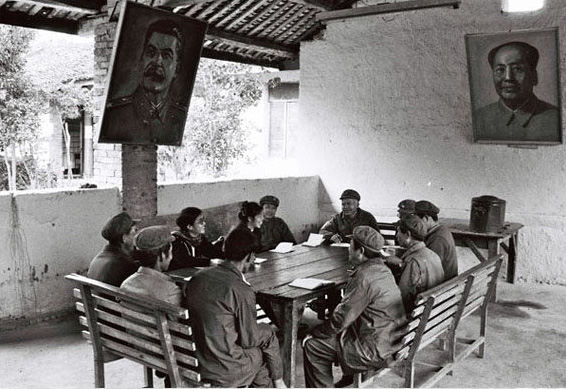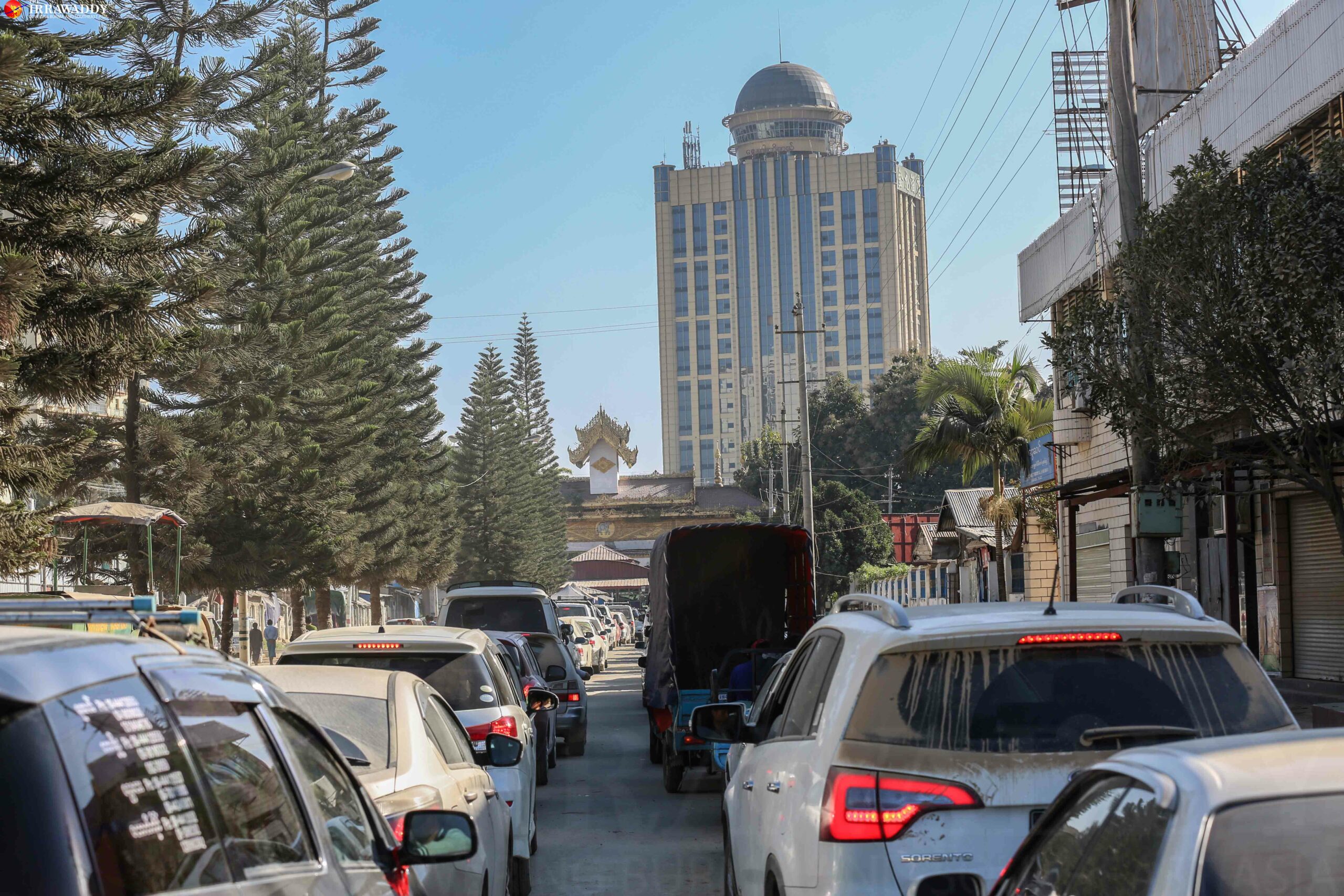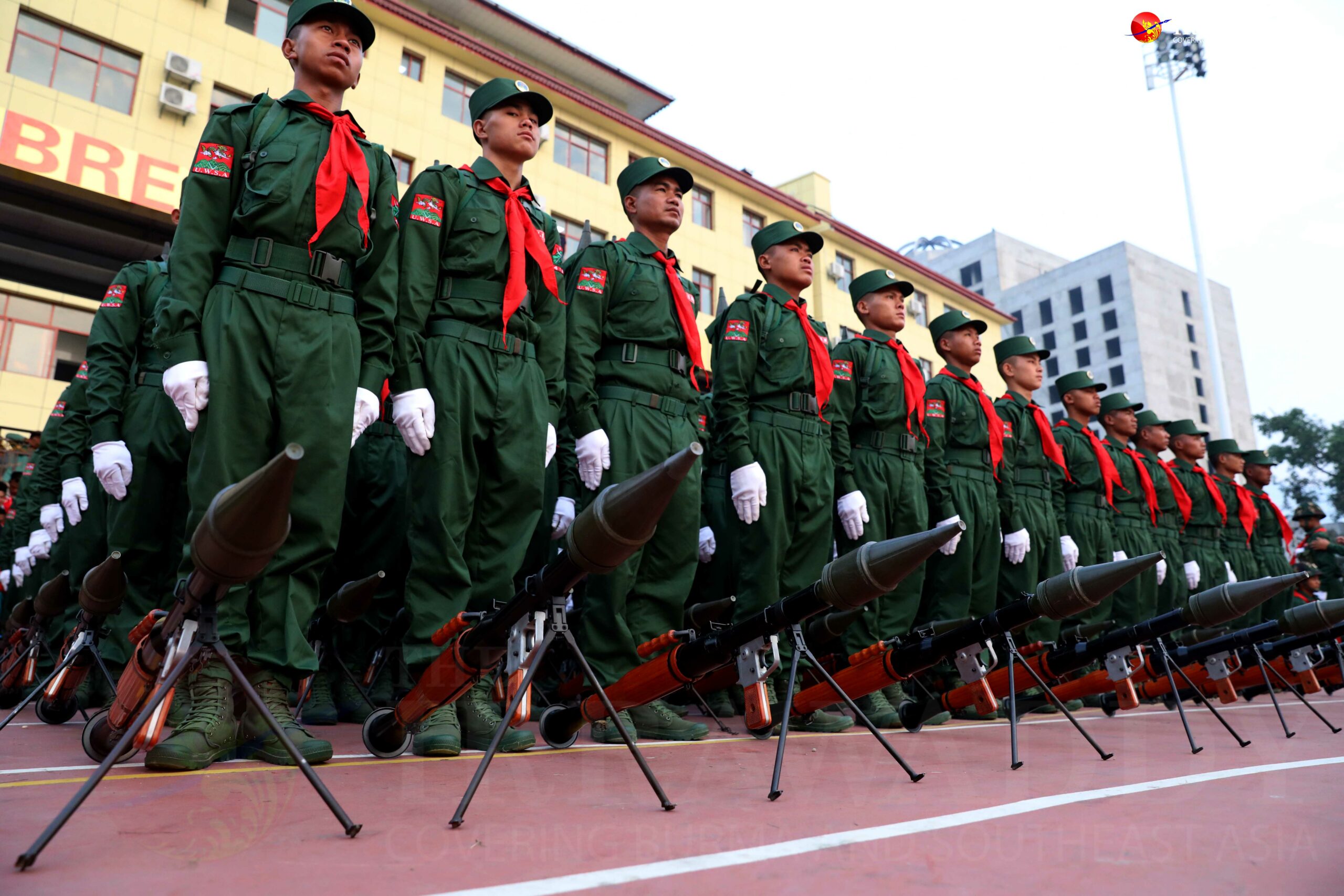The decision of ASEAN to block coup-maker and junta leader Senior General Min Aung Hlaing from attending its ongoing summit, which started Tuesday and ends on Thursday, has taken the world by surprise. ASEAN does not normally make any decision that could be seen as “interference” in one of its 10 member states’ internal affairs. The military-appointed Foreign Ministry in Naypyitaw issued a statement saying that the decision “was done without consensus and was against the objectives of ASEAN.” Junta spokesman Brigadier General Zaw Min Tun, not surprisingly, blamed foreign powers for the snub, claiming that the United States and the European Union had pressured ASEAN to exclude Min Aung Hlaing from the online meeting.
But it may be much ado about nothing because the leaders of Myanmar’s military, known as the Tatmadaw, are in the long run unlikely to pay much attention to what ASEAN does or doesn’t do. The generals’ decision to join the grouping in 1997 had more to do with finding allies in their altercations with critical Western powers than a desire to change their ways. There is, in fact, only one foreign power that has the power and the means to influence and manipulate the internal situation in Myanmar: the People’s Republic of China.
China is also the only neighboring country that has fundamental strategic and economic interests in Myanmar—and it is prepared to do whatever it takes to protect those interests. We all know about the multi-trillion-dollar Belt and Road Initiative (BRI), which President Xi Jinping launched in 2013. Described as a global infrastructure development strategy, it includes investments in nearly 70 countries worldwide as well as some international organizations, such as those engaged in protecting the environment and even wildlife.
The aim is evidently to connect China with the outside world in a way that has never been done before and, ultimately, make China the world’s foremost superpower. But it is often forgotten that this policy of finding new outlets for trade with the outside world predates the BRI—and that it was first conceived in the 1980s in relation to Beijing’s plans to exert a new kind of influence in Myanmar. I have written a lot about this in the regional and international media, but it’s worth reminding readers of an article outlining those plans which I have quoted numerous times in the past.
The article appeared, at the time almost unnoticed, in the Beijing Review as early as Sept. 2, 1985. Titled “Opening to the Southwest: An Expert Opinion,” it was written by the former Vice Minister of Communications Pan Qi and outlined, in detail, the possibilities of finding an outlet for trade from China, through Myanmar, to ports at the coast of the Indian Ocean. Pan mentioned the Myanmar railheads of Myitkyina in Kachin State and Lashio in northeastern Shan State as possible conduits for the export of Chinese goods. But he refrained from mentioning that all relevant border areas were then not under central Myanmar government control.
At that time, nearly the entire, 2,192-km Sino-Myanmar frontier was actually controlled by the Communist Party of Burma (CPB) and other non-state armed groups who had ties―political, ethnic or both―to China. But by early 1987, the Tatmadaw had managed to recapture a few CPB strongholds along the frontier, including the booming border town of Panghsai, where the fabled “Burma Road” crosses into China at Wanding, east of the city of Ruili. At the same time, the Chinese, whose policies had changed dramatically since the Cultural Revolution, had already begun to penetrate local markets through an extensive economic intelligence reporting system within Myanmar. This network monitored the availability of domestically manufactured Myanmar products, as well as the nature and volume of illegal trade from other neighboring countries such as Thailand, Malaysia, Singapore and India. China could then respond to the market conditions by producing goods in its state sector factories. Before long, more than 2,000 carefully selected items were reported to be flooding the Myanmar market. Chinese-made consumer goods were not only made deliberately cheaper than those from other neighboring countries, but were also less expensive than local Myanmar products.

Then, in March-April 1989, to the surprise of many, the hill tribe rank and file of the CPB’s army mutinied and drove the party’s Maoist leadership into exile in China. The mutiny came after years of simmering discontent between the hill tribe cannon fodder, who had been forcibly recruited into the CPB’s army, and the ageing Burman intellectuals who were still clinging to their orthodox Maoist ideals. The government in Yangon quickly and shrewdly exploited the mutiny: the leaders of the new forces that emerged from the ashes of the old CPB, primarily the United Wa State Army (UWSA), were promised that they could engage in any kind of business, if they agreed to a ceasefire with the government.
The most potent military threat to the regime was neutralized, and, as a result, the cross-border trade flourished—and so did the newly won friendship between the leaders of two of Asia’s most repressive regimes. At the same time, China could, through its peculiar two-tier foreign policy, maintain government-to-government relations not only with the ruling military, but also party-to-party relations with Myanmar’s many ethnic armed groups, including the UWSA. In more recent years, the Communist Party of China (CPC) has established relations with both the Union Solidarity and Development Party and the National League for Democracy. It is important for the leaders in Beijing not to put all their eggs in one basket because no one knows who will rule, or be influential, in Myanmar in the future.
In the early 1990s, I was at Jiegao, a small enclave of Chinese territory on the south side of the Shweli River opposite Muse and saw a giant monument showing four figures wheeling a circular object between them, their determined faces pointing south. The Chinese characters on the base say “Unite, Blaze Paths, Forge Ahead!” Or, in more mundane terms: “Southeast Asia, here we come!” There was no doubt that the monument and the message on its base appeared provocative to people in Myanmar. In the early 1990s, there was little more than bamboo huts and rice fields in the Jiegao enclave. But today, 25 years later, Jiegao is full of high-rise buildings, luxury hotels, and stores selling all kinds of wares. There is also a huge jade market where buyers from all over China come to shop for the precious stone, which is found in its imperial green form only in northern Myanmar.
Every morning—until the COVID-19 pandemic forced a closure of the border—caravans of trucks laden with Chinese consumer goods left Jiegao through a border gate for points beyond Muse: the towns of Lashio, Mandalay and Yangon, and even as far as Moreh on the Indian border. Not only Myanmar but also northeastern India was being flooded with cheap Chinese merchandise. And not far from Ruili are pipelines through which oil and gas are being transported from the Myanmar coast to Yunnan.

It is not clear when the border will be open for trade again, but given the strategic importance of what’s now known as the China-Myanmar Economic Corridor (CMEC), Beijing is not likely to abandon its long-term plans for Myanmar and the region. Myanmar is the only neighboring country that provides China with direct access to Indian Ocean ports, bypassing the contested South China Sea as well as the congested Malacca Strait. The CMEC is one of the most important pillars of Xi’s BRI; without it, China would not be able to fulfill its plans for global dominance. For that very reason, whatever government is in power in Naypyitaw, China would court it in order to safeguard those strategic interests. Beijing may prefer a like-minded authoritarian regime, but we also have to remember that it was State Counselor Daw Aung San Suu Kyi who signed up to the BRI when she attended the Forum for International Cooperation in Beijing in May 2017.
But how—and where—do the ethnic armed groups, with which China also maintains close relations through its security services, fit into the picture? If we venture further back in history, and then before Pan Qi wrote his article for the Beijing Review, Myanmar was also of utmost strategic importance to Beijing, but then at a time when China wanted to export revolution, not consumer goods. The CPB’s 20,000-sq.-km base area along the Sino-Myanmar border was there not only to support the intended revolution in Myanmar, but also to serve as a springboard from where Maoist communism, the CPC hoped, would spread to other parts of Southeast Asia. The mastermind behind that plan was Kang Sheng, a dreaded hardliner who, during the Cultural Revolution in the 1960s and early 1970s, worked for China’s internal security and intelligence apparatus—and was in charge of the CPC’s contacts with fraternal Maoist parties in Asia and beyond.
The plan—and CPB Chairman Thakin Ba Thein Tin told me this when I interviewed him at the party’s Panghsang headquarters in 1987—was to link up with the Communist Party of Thailand’s (CPT) guerrillas; the Communist Party of Malaya, which was led by Chin Peng, a hero of the struggle against the Japanese during World War II; the Communist Party of North Kalimantan (the Malayan communists did not recognize the Malaysian Federation, so there was a separate communist party in Sarawak and Sabah); the once powerful Partai Komunis Indonesia (PKI); and, eventually the Communist Party of Australia (Marxist-Leninist), actually a tiny Maoist party led by Edward Fowler Hill, a fairly prominent lawyer and barrister.
Thakin Ba Thein Tin and Hill met in Beijing, relations with Chin Peng were maintained through intermediaries in Kunming, and CPT activist stayed in Panghsang until they returned to Thailand in 1983. When I was at Panghsang in 1986-87, I saw a concrete well with Thai writing on it, built by CPT cadre. When I was out in the field with the CPB’s troops, I heard numerous stories about “the Indonesian comrades” and their exploits. Among them were two daughters of PKI chairman D.N. Aidit, who was killed in Indonesia in 1965. The CPC had sent a dozen or so PKI militants, who happened to be in China in the 1960s, down to the CPB’s base area where they were going to learn guerrilla warfare. CPB leaders told me they were used as radio operators during battles with the Tatmadaw when messages could not be encrypted. The Tatmadaw interceptors did now know what they were saying—because they spoke in Bahasa Indonesia. The PKI militants had left when I was there, and I was told they had gone into exile in the Netherlands and Canada.
Following the death of Mao Zedong in 1976 and Deng Xiaoping’s return to the political fold, China changed its policy towards the region. However, whether China wants to export revolution or expand and protect commercial interests, to safeguard and even control the “Myanmar corridor” has always been of vital importance to Beijing’s security planners. In the past, the epicenter for that policy was Panghsang. Today it is Jiegao.
But the ethnic armed organizations are also important. A strong UWSA provides China with a strategic advantage and is also a bargaining chip in negotiations with Naypyitaw. Significantly, when President’s Office Minister Aung Min visited Monywa in November 2012 to meet local people protesting a controversial Chinese-backed copper mining project at Letpadaung northwest of Mandalay, he openly admitted: “We are afraid of China… we don’t dare to have a row with [them]. If they feel annoyed with the shutdown of their projects and resume their support to the communists, the economy in border areas would backslide.”

Aung Min was right, but by “the communists” he clearly meant the UWSA and its allies, the Kokang-based Myanmar National Democratic Alliance Army, the Palaung Ta’ang National Liberation Army, the Shan State Army of the Shan State Progress Party, whose weaponry and vast quantities of ammunition had been supplied by the UWSA. The Kachin Independence Army has also benefited from some support from the UWSA, but not to the same extent as the other groups in what is usually referred to as the Northern Alliance. While the UWSA is not engaged in any fighting itself, it has become a major source of the weaponry that is being used in the war in northern Myanmar.
The Chinese may be denying giving any material support to the UWSA and indirectly supporting its allies, but what the Wa have received from China is not the kind of equipment that “falls off the back of a truck”, or could be sent to them by some local officials in Yunnan. The deliveries were almost certainly directed from the highest level of China’s intelligence and military authorities in Beijing. And it is no secret that Chinese security officials have had several meetings with representatives of the Northern Alliance—and told them not to fight too close to the border or to damage the oil-and-gas pipelines.
The CPC’s position above the government as well as the military, the People’s Liberation Army, in the Chinese hierarchy explains why China could publicly praise Myanmar’s now collapsed peace process while quietly providing the UWSA with heavy weaponry. Support for the UWSA and its allies serves as a “stick” in Beijing’s relationship with Myanmar, while diplomacy and promises of aid and investment are the “carrot.”
In the official rhetoric in Beijing as well as Naypyitaw, relations between China and Myanmar have always been characterized by pauk-phaw, a Burmese word for siblings, but nothing could be falser than that cliché. Sino-Myanmar relations have always been anything but brotherly, and decades of history show us how China plays games with Myanmar to achieve whatever strategic goals the leaders in Beijing might have. Forget about ASEAN’s actions, statements and awkward attempts at exercising influence. It is China and its plans and strategic maneuvers that count.
Bertil Lintner is a Swedish journalist, author and strategic consultant who has been writing about Asia for nearly four decades.
You may also like these stories:
UN Envoy Joins Her Predecessors in Myanmar’s ‘Graveyard of Diplomats’
A Textbook Example of Authoritarian Rule in Myanmar
Explained: The Tussle Over ASEAN’s Special Envoy to Myanmar

















